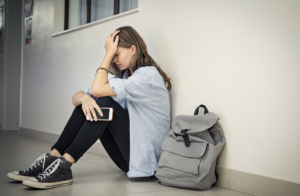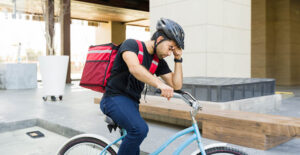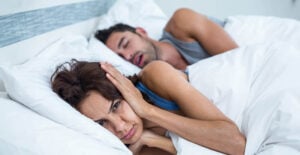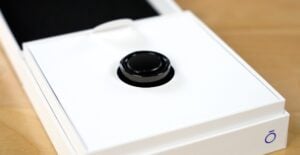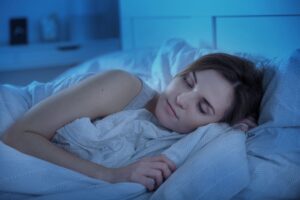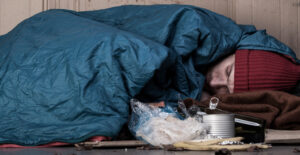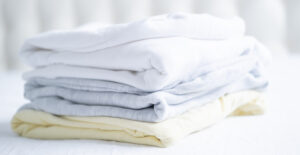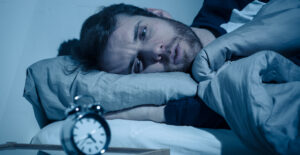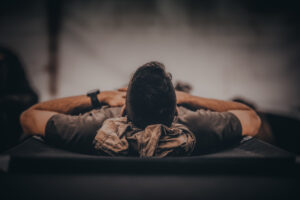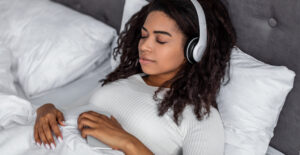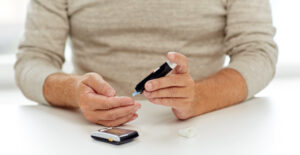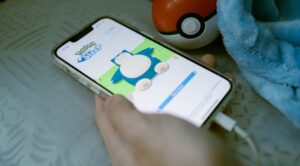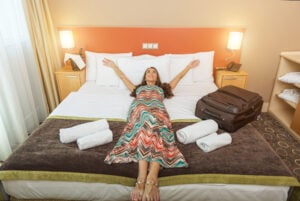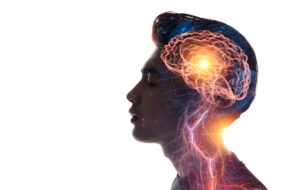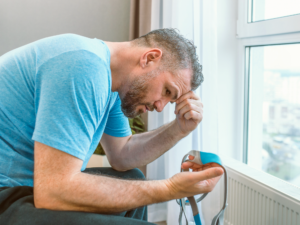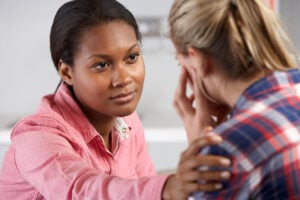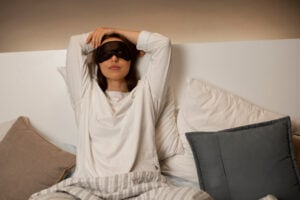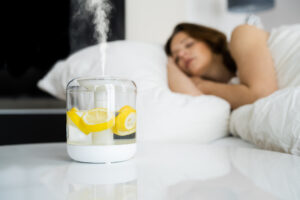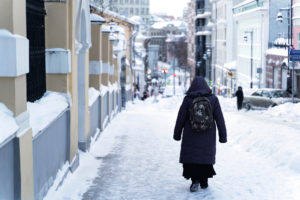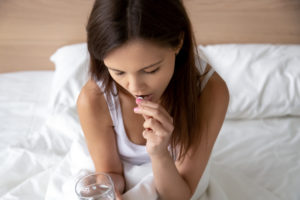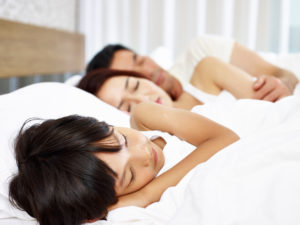We May Be Showering All Wrong, at Least When It Comes to Sleep
- 41.8% of U.S. adults shower or bathe in the morning, according to a survey, with 32.2% doing it upon waking up.
- 25.3% of adults shower or bathe right before bed, part of the 38.4% doing so in the evening.
- Women are more likely to shower or bathe before bed (27.9%) versus right after waking up (25.5%).
- Men are far more likely to shower or bathe right after waking up (40.8%) versus before bed (21.7%).
- 80.5% of respondents shower more often than they bathe.
Taking a shower or bath is the second most popular bedtime ritual for adults, behind watching TV, according to a June 2022 SleepFoundation.org poll. But only 25.3% to 32% of us actually do it. That’s pretty low, especially when research has shown showering or bathing before bed helps you sleep better and longer each night.
So what gives? Are we sabotaging our sleep hygiene by not showering at night?
According to a September 2022 SleepFoundation.org survey of U.S. adults ages 18 and older, people do indeed prefer morning showers and believe it jump-starts their day. Among the 1,250 respondents, 41.8% shower or bathe in the morning, with 80.9% of that group saying that doing so wakes them up. But 38.4% shower or bathe in the evening. Only 53.3% of that group say they do so to help them fall asleep.
Got a hot tip? Pitch us your story idea, share your expertise with SleepFoundation.org, or let us know about your sleep experiences right here.
But is it helping them sleep better, and does timing matter that much? Let’s first dive into who is showering at night.
Who Showers Before Bed?
According to the survey, showering preference is split across sexes and age groups. More women (27.9%) prefer a shower or bath before bed than right after waking up (25.5%). Men are far more likely to shower or bathe first thing in the morning (40.8%) than right before bed (21.7%).

People younger than age 34 are more likely to shower or bathe before bed (31.3%) compared to first thing in the morning (27%), with 46.2% saying it helps them fall asleep. Yet people older than age 34 are more likely to shower or bathe when they wake up (35.9%) than right before bed (21%), with the majority (57.5%) saying they shower or bathe to wake up.
The timing may be out of habit. Jenny Iyo, a Seattle-based doctor of physical therapy and SleepFoundation.org medical-review panel member, says she started showering at night as a child.
“I do this mainly as a hygiene thing and for comfort,” she says. “I exercise or bike almost daily, so I would have to wash my sheets all the time if I didn’t shower before bed. I also don’t like feeling sticky in bed.”
After all, one of the purposes of showers or baths is to get clean. But how they make us feel also may inform our choices.
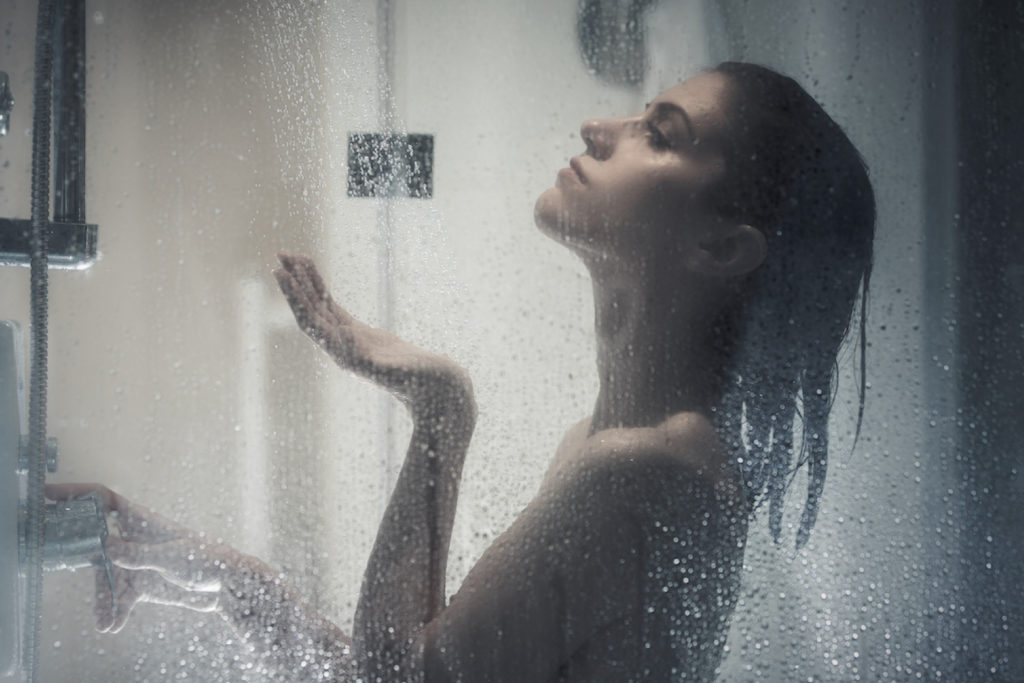
Among survey respondents, 73.3% say they feel refreshed after a shower or bath, 67.3% say they feel relaxed. Some 51.6% say they shower or bathe for reasons other than just getting or feeling clean.
But that’s only part of the story. According to the science, we can use a shower or bath to unlock better sleep — if we time it right.
Sleep Really Can Take the Heat
It all comes down to body temperature, says Shahab Haghayegh, Ph.D., a research fellow at the Harvard University Medical School’s Division of Sleep Medicine. He combined his engineering background with his own issues falling asleep to understand more about how body heat relates to good rest.
In a 2019 article , Haghayegh detailed the systematic review he conducted with four other scientists about the benefits of warm baths. They found that soaking in a bath of 104 to 109 degrees Fahrenheit for as little as 10 minutes, about one to two hours before bed, resulted in less tossing and turning and more quality sleep.
The warmth of the bath or shower opens our blood vessels, bringing a large blood flow to the surface of the body, especially in the hands and feet.
“More blood flows out from the core, so heat is easily lost to the environment,” Haghayegh says.
After your warm shower or bath, your warm body goes into a cool-down mode. This triggers your circadian rhythms that tell your body it’s time to sleep. So we do, or at least we may feel tired.
But according to survey respondents, 33.4% say they feel more awake after a shower or bath, versus the 8.5% who feel tired.
Does that mean many of us are actually taking cold showers, which may wake us up quicker? Not really, as 57.6% of survey respondents say it’s not something they’d ever do.
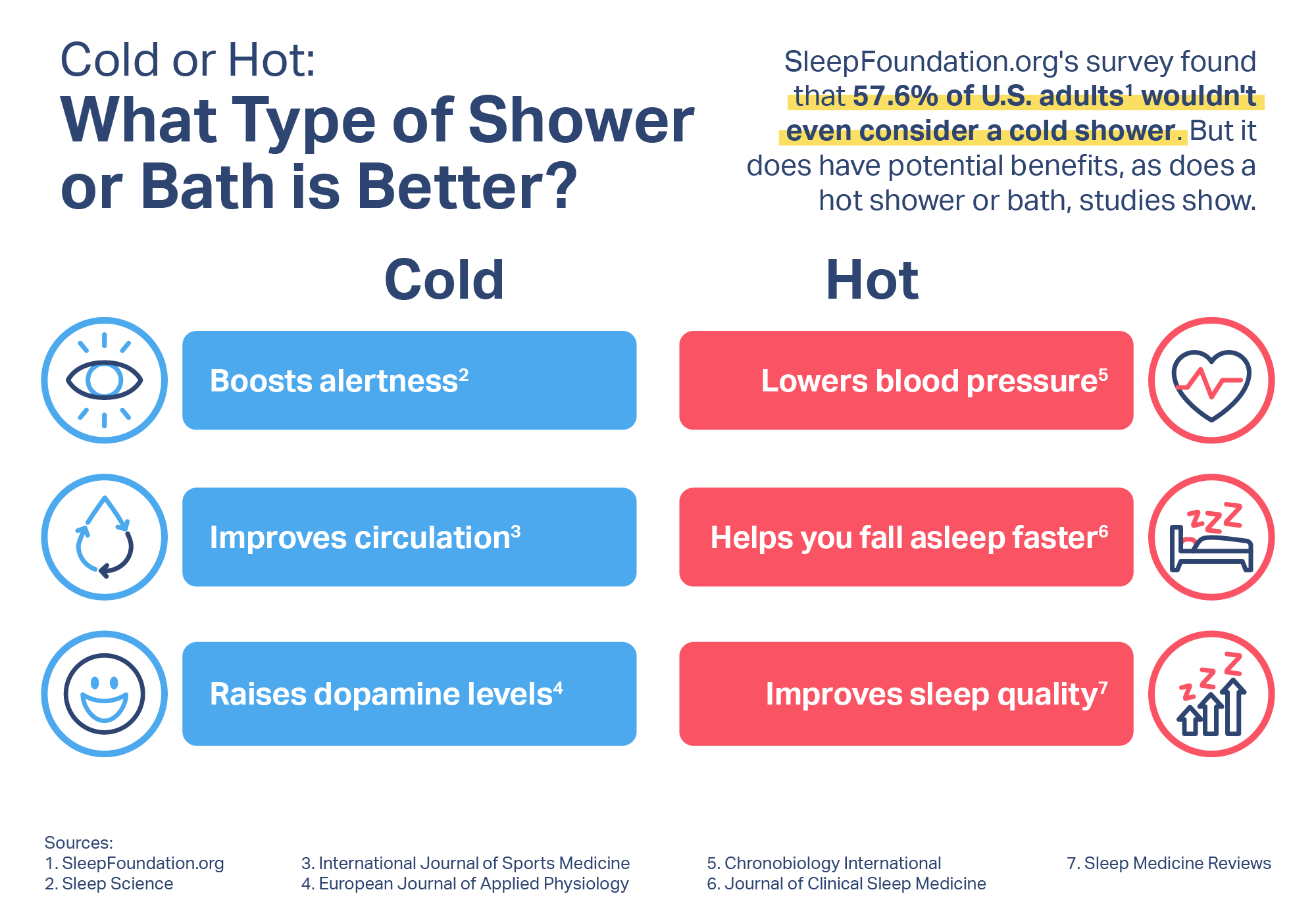
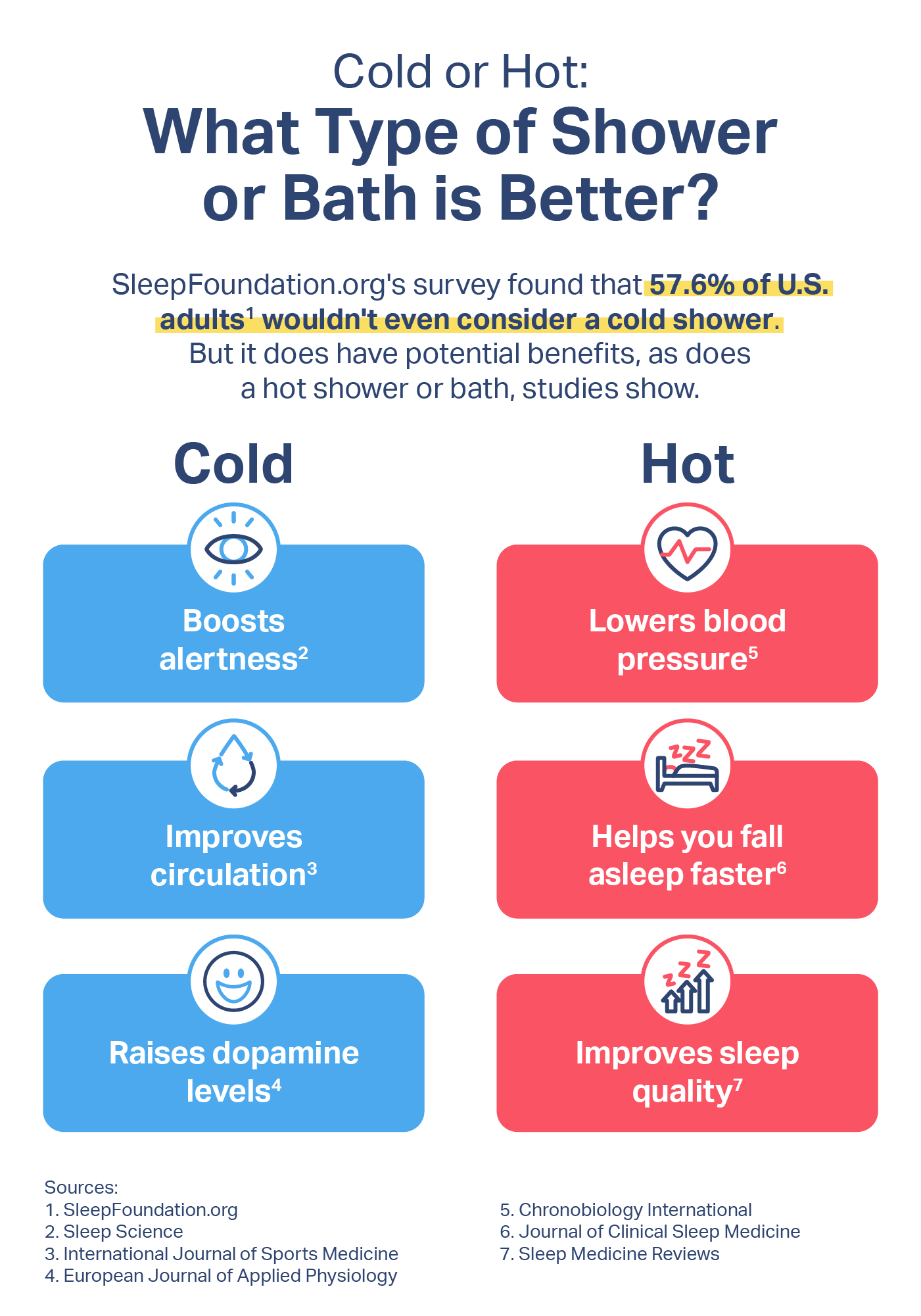
When asked to describe their ideal shower or bath temperature, most respondents say the hotter, the better. That may be an offshoot of our preference for showers versus baths, with 8 of 10 respondents showering more often than they bathe. It’s not easy (or healthy) to sit in a scalding-hot pool, but our bodies can take it for the average 15-minute shower length.
Only 11% of survey respondents say they’d prefer their shower or bath lukewarm or colder. On average, their preferred temperature was “moderately warm,” or 76.1 on a 100-point scale.
“Timing is important. The bath cannot be too close or too far from bedtime.” — Shahab Haghayegh, Ph.D., Harvard University Medical School Division of Sleep Medicine
But even the 25.2% of respondents who are showering or bathing right before bed may not be doing it right. They may not give their bodies enough time to cool down for better sleep. Your core body temperature needs time to decrease , with the loss of heat promoting the onset of sleep.
“Timing is important,” Haghayegh says. “The bath cannot be too close or too far from bedtime.”
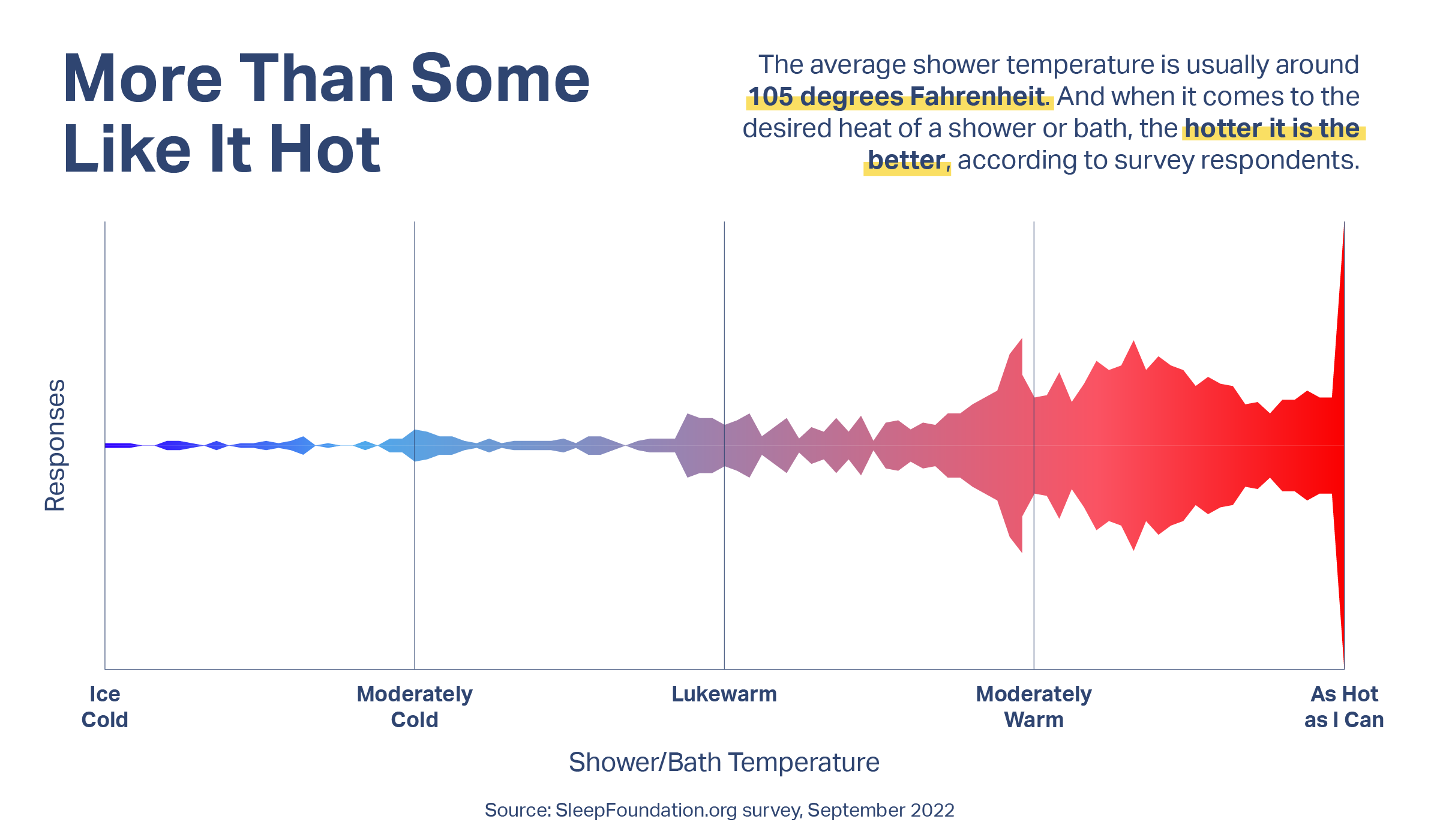

Did it affect respondents’ sleep? Not necessarily. Overall, 58.7% of night shower/bathers say it took 20 minutes or more to fall asleep, higher than the average 10 to 20 minutes it takes adults to fall asleep. Some 56.7% of adults who shower or bathe in the morning reported above-average sleep latency.
Shower timing didn’t affect the amount of sleep respondents got, either. Those who shower or bathe right before bed average 6 hours and 46 minutes of sleep, as did those who do so right after waking up.
How a Shower Can Be Your New Sleep Hack
Showering or bathing for better sleep may be less of a long-term solution than a short-term strategy. After all, changing sleep routines can be tough and not always feasible. But if you get a jolt of energy from showering in the morning, consider how nighttime showering, when done the right way, could help if you’re having trouble falling or staying asleep.
Your body cooling down after a warm shower ” is conducive to melatonin release,” says Dr. Abhinav Singh, medical director of the Indiana Sleep Center in Greenwood, Indiana, and a SleepFoundation.org medical-review panel member.
He also suggests skipping the scrolling in favor of reading a book after an evening shower and focusing on your breath to relax once you’ve turned out the lights. But don’t expect overnight results from new bedtime rituals, Dr. Singh says.
“Repeat this over and over for three to four weeks, and you are teaching your brain in a Pavlovian way to allow the brain to take off in sleep flight,” he says. “Practice makes a habit. Let sleep come to you. Nobody can sleep better by trying harder.”
Methodology
The survey commissioned by SleepFoundation.org was conducted on the online survey platform Pollfish on Sept. 28, 2022. Results are from 1,250 survey participants who were ages 18 and older and lived in the United States at the time of the survey. All attested to answering the survey questions truthfully and accurately.
References
4 Sources
-
National Heart, Lung, and Blood Institute. (March 24, 2022). Healthy Sleep Habits., Retrieved October 24, 2022.
https://www.nhlbi.nih.gov/health/sleep-deprivation/healthy-sleep-habits -
Quartz (Published 8/14/2019; Last updated 7/20/2022)., Retrieved October 12, 2022.
https://qz.com/quartzy/1686779/the-science-of-why-a-warm-bath-before-bed-helps-you-sleep/ -
Haghayegh S, Khoshnevis S, Smolensky M, Diller KR, Castriotta RJ. Before-bedtime passive body heating by warm shower or bath to improve sleep: A systematic review and meta-analysis, Elsevier, Aug. 2019.
https://pubmed.ncbi.nlm.nih.gov/31102877/ -
Okamoto-Mizuno, K., Mizuno, K. Effects of thermal environment on sleep and circadian rhythm. Journal of Physiological Anthropology 31, 14 (2012), Retrieved November 1, 2022.
https://pubmed.ncbi.nlm.nih.gov/22738673/


